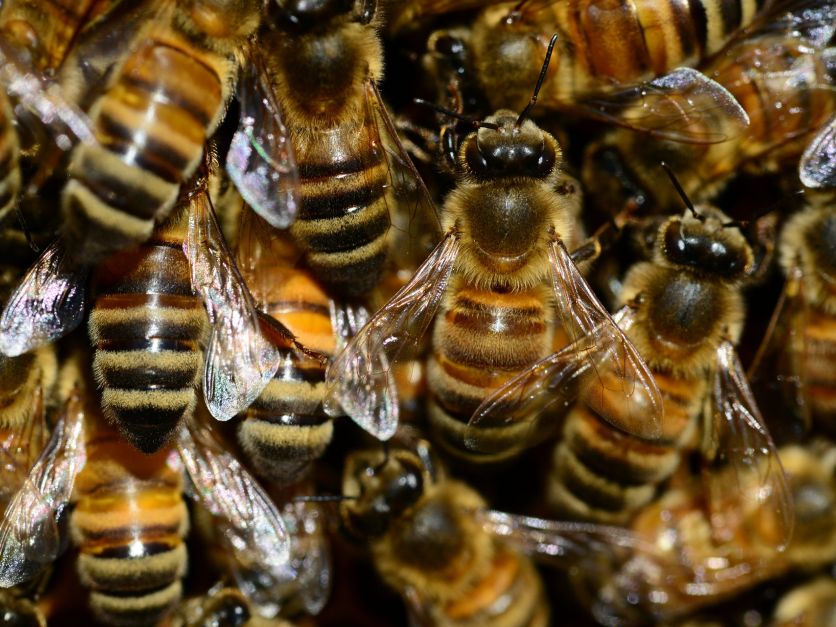By thinking small, a team of researchers might have just made a big step forward in the fight to protect bees from insecticides.
Using a pollen-sized microparticle that contained a certain enzyme, a group of scientists was able to create an “antidote” to organophosphate-based insecticides, according to a Cornell University release. The resulting study — funded by the USDA's National Institute for Food and Agriculture, the National Institutes of Health and the National Science Foundation — found that the bees that ingested high doses of these microparticles had a 100% survival rate when exposed to malathion, while bees that had no contact with the microparticles died.
"We have a solution whereby beekeepers can feed their bees our microparticle products in pollen patties or in a sugar syrup, and it allows them to detoxify the hive of any pesticides that they might find," James Webb, a co-author of the paper and CEO of Beemmunity, said in the release.
Once the microparticles are ingested by bees, the enzymes they contain enter the bee’s midgut, where they break down and detoxify pesticides.
Interested in more news on farm programs, trade and rural issues? Sign up for a four-week free trial to Agri-Pulse. You’ll receive our content - absolutely free - during the trial period.
According to the release, Beemunity has expanded upon the research by putting an insect-protein shell around the particles and filling them with a “special absorptive oil.”
“Many insecticides, including widely-used neonicotinoids, are designed to target insect proteins, so the microparticle shell draws in the insecticide where it is sequestered inert within the casing,” the release states.
Over the summer, Beemunity will test the product on 240 hives in New Jersey. The goal is to launch products in February 2022.
For more news, go to www.Agri-Pulse.com.


